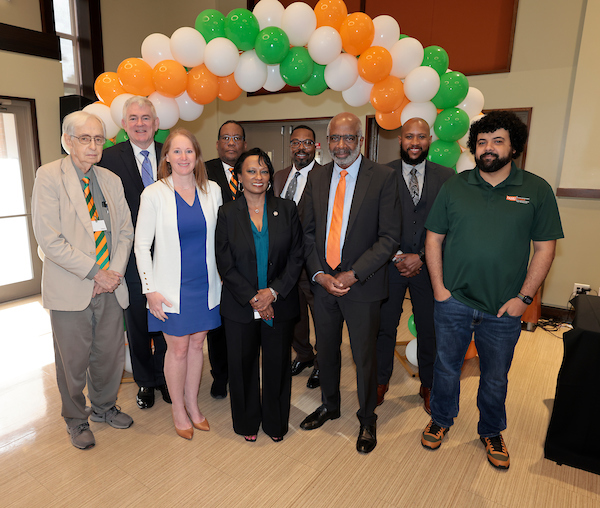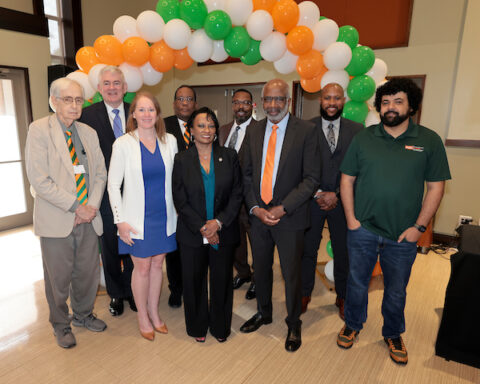By Andrew Skerritt
Florida A&M University (FAMU) hosted a three-day Annual Technical Meeting of the National Nuclear Security Administration (NNSA) along with the Minority Serving Institution Partnership (MSIPP) and Tribal Education Partnership Program (TEPP).
Themed, “Empowering the Future Workforce,” the meeting was aligned with the NNSA’s mission to create and support sustainable career pathways that prepare a diverse workforce of talented students.
The gathering kicked off Tuesday, April 9 with speeches including a keynote address from Dietra Y. Trent, Ph.D., executive director of the White House Initiative on Advancing. Educational Equity, Excellence, and Economic Opportunity through Historically Black Colleges and Universities (WHI-HBCUs).
Trent praised the efforts of HBCUs, whose contributions far outweigh their size and resources.
“Despite the fight for long term systemic barriers to accessing resources and opportunity, HBCUs continue to make extraordinary contributions to our society and to the prosperity of our nation contributing more than $50 billion in economic impact annually and nearly 150,000 jobs in the local and regional economies that we serve,” Trent told the gathering. She said President Joe Biden appreciates the value of HBCUs like FAMU. “Investment in HBCUs is an investment in the future of this nation. He understands more than most that America simply cannot compete or out innovate other nations without HBCUs.
“The president understands we must invest in and support talent development and research entrepreneurship and innovation from every corner of this nation,” Trent continued. “HBCUs are drivers of innovation.”
The mission of MSIPP is to create and support a sustainable career pathway that prepares a diverse workforce of talented students to make immediate and significant contributions to the Nuclear Security Enterprise (NSE).
To achieve this mission, MSIPP developed strategic partnerships between Minority Serving Institutions (MSIs), including HBCUs, Hispanic Serving Institution (HSI), Tribal Colleges and Universities (TCUs), and the NSE, investing in student enrichment programs, curriculum development, research efforts, and internship opportunities, according to FAMU President Larry Robinson, Ph.D.
In addressing the group, Robinson pointed out that MSIPP aligns the investments in university capacity and workforce development with the NNSA’s mission to develop the needed skills and talent for the NSE’s enduring technical workforce while enhancing research and educational capacity at underrepresented colleges and universities.
FAMU leads several consortia of minority-serving institutions with approximately $11 million in NNSA grants to expand research capacity and increase the number of minority graduates and post-doctoral students hired into the NNSA Nuclear Security Enterprise’s technical and scientific workforce, among other goals.
NNSA national laboratories include the Lawrence Livermore, Los Alamos, and Oak Ridge, where Robinson worked before joining the University more than 25 years ago.
Representatives from the NNSA Laboratories are also on campus this week to help celebrate FAMU’s annual STEM Week with a site speed circuit showcase.
“FAMU has produced a number of graduate fellows and national lab employees,” Robinson said. “We appreciate the great work the national labs do and we’re happy that FAMU is involved in training the next generation of lab scientists.”


